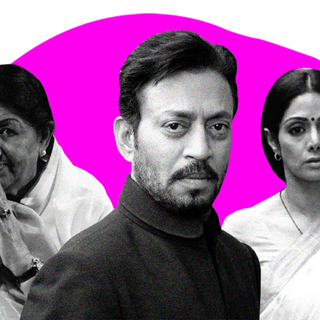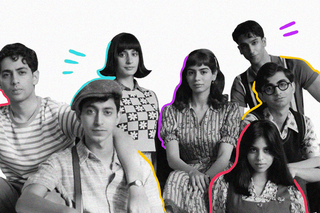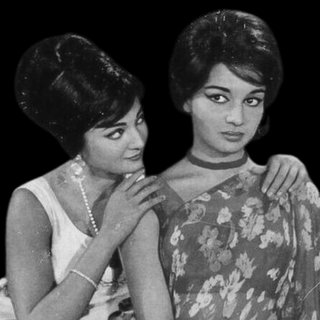
The Nepotism Debate Keeps Going in Circles. How Do We Move Forward?
Talking about ‘The Archies’ would need to recognize nepotism as a feature of power at all levels of society.

Let’s talk about the trailer of The Archies. It’s intriguing yet irritating for exactly the same reasons. In what looks like a one and a half minute-long #OldMoney TikTok; we see some fresh yet familiar faces frolicking in a meadow in pleasant retro fashion, a dewy vintage tint to the lens that gives them the appearance of ephemeral Grecian angels on the verge of morphing into a bacchanal offscreen. It’s simultaneously pleasant and infuriating — not least because it represents the country’s most privileged youth accessing the glamour and beauty they’ve inherited through birth.
The trailer of The Archies thus stirred the discourse pot once again — but there’s something about it that feels tiring. We’ve been here before, several times. The word ‘nepotism’ is now inextricably linked with Bollywood thanks to an infamous episode of Koffee With Karan — but we’re stuck in a circle. Every now and then, a star kid is launched. Netizens, in turn, launch into heated debates. Nepotism is pointed out. Rinse, repeat.
At the heart of our discomfort with nepotism is the unfairness of it all. Why do some people get to access fame and glamour just because of who they are? How come they get everything handed on a platter, while everyone else struggles?
There’s a word for it other than nepotism. Sociologists have pointed out that access to resources, networks, and connections is a form of capital itself: social capital. And the thing about social capital is that more people have it than it seems. French sociologist Pierre Bourdieu defined it as “the aggregate of the actual or potential resources which are linked to possession of a durable network of more or less institutionalized relationships of mutual acquaintance or recognition.” In simpler terms — it is the sum of all the people one knows and the opportunities one has access to, and it can — together, it has the power to define one’s entire career trajectory. The family and structures of inheritance and lineage ensure that a lot of what we take for granted is actually passed down as a birthright.
Related on The Swaddle:
How Tollywood’s Two ‘Rival’ Castes Work Together to Maintain Political, Industry Power
Zooming out of Bollywood and the 0.001% shows that nepotism — the practice of inheriting resources and capital by birth — is how society itself is structured. We live in a caste society, wherein our networks are predetermined by the families we’re born into. It is a much more elaborate version of “keeping it in the family” — and it’s why education, housing, food, and increasingly, medicine, function as elite spaces with their doors closed to “outsiders.” Indeed, hoarding capital within small groups happens on such a scale that it defines who has access to life’s necessities itself.
Nepotism, ultimately, has to do with inheritance. The blatant inequity is stark and easy to point out when it comes to star kids — indeed, beautiful famous people have always been easy targets of our general ire with privilege. It is grating to watch not because it is special, but because it visibilizes the way power is distributed in most aspects of life. Some forms of it have greater stakes than others. Think, for instance, about property. Is there anything other than blood, currently, that entitles someone to property that belonged to their parents? Is extraneous land not better used by those who don’t have a roof over their heads? And above all: is any of this fair?
Or, think education. This is less straightforward, but it still remains the case that the kind of schooling children have access to is a function of their social capital. The “best” schools are populated by people who might, to an outside eye, look exactly like the Archies‘ kids — homogenous, glowing with the privilege of being well-fed, loved, and handed the opportunity to be exactly who they wanted to be and where they are without having to fight against the odds their not-so-privileged contemporaries had to face.
If you are reading this article, moreover, it may be because you have an opinion about nepotism. But it is also because you are comfortable reading and thinking in English. Speaking fluent English, then, is another example — if you’ve been doing it from a very young age, chances are that you’ve picked it up from your immediate environment. Having a family that is fluent in English and actively speaks it points to another inherited privilege: generations of English-medium education, white-collar or elite professions, and the doors they all opened up by default.
Related on The Swaddle:
To talk about nepotism, then, would involve moving outside the confines of Bollywood. If the grouse against nepotism is really about unequal access, it might be worth turning inward. It means looking at the institutions, resources, and capital we’ve inherited ourselves. And to advance the debate would then be to ask questions about redistributing access.
For better or worse, we don’t all have the fundamental right to star in a Zoya Akhtar film. Our place in a Dharma production is not enshrined by the Constitution. But there are other opportunities and resources far more essential to survival that are, and there’s a system to ensure that nobody inherits them as their exclusive birthright. This system has a bad name — but transpose it back to the world of the movies for a minute. Wouldn’t it be nice if star kids’ access to scripts and directors was limited by virtue of a few spots reserved for others without the same privileges?
In the world of art itself, seeing newer faces would perhaps be possible if art itself — especially the kind that gets mileage on big screens (or streaming giants) became less of a privilege. With many having to sacrifice their creative dreams in service of putting food on the table and just survive, conversations about nepotism become unproductive when it’s just directed at pointing out the presence of star kids on screen.
What would it take for our society to shift such that more people had the freedom to dream and be creative? What would it mean to distribute the means of creativity such that everyone can partake in it? Dethroning star kids and their default primacy over the biggest and grandest medium of art we have would mean more than simply pointing it out — it would require a fundamental rethink of the opportunities we allow one another, and the ones we don’t.
Rohitha Naraharisetty is a Senior Associate Editor at The Swaddle. She writes about the intersection of gender, caste, social movements, and pop culture. She can be found on Instagram at @rohitha_97 or on Twitter at @romimacaronii.
Related


Woe Is Me! “I Think My Friend is a Thief. How Do I Proceed?”
